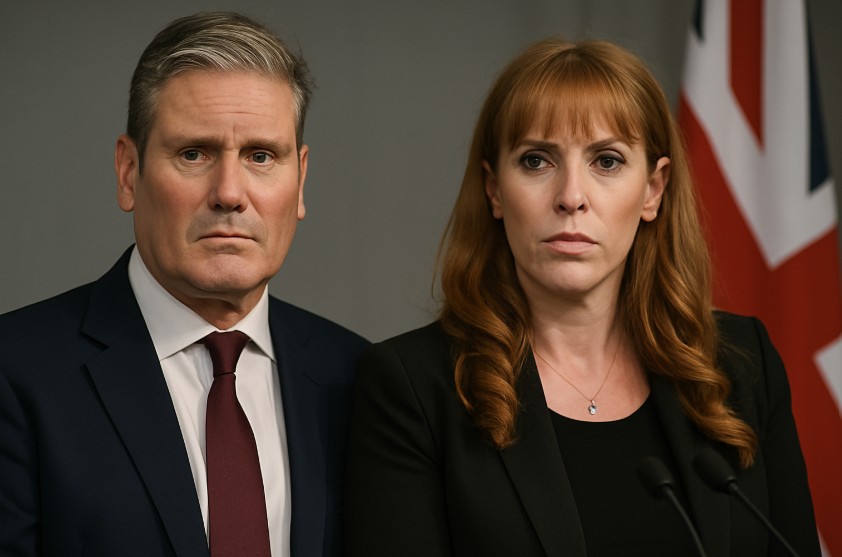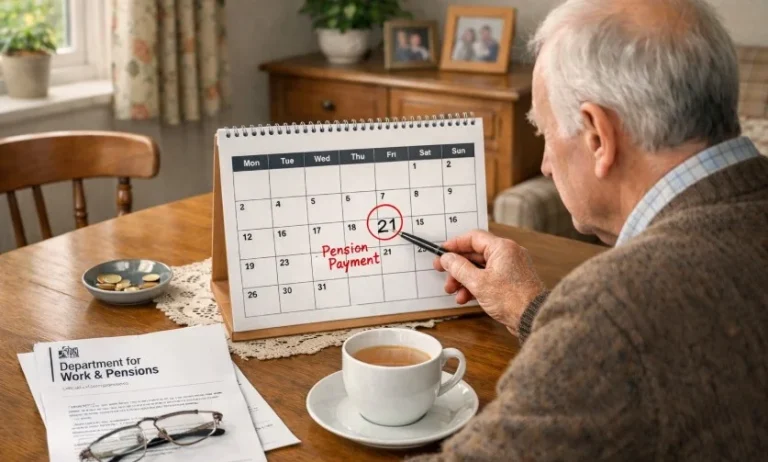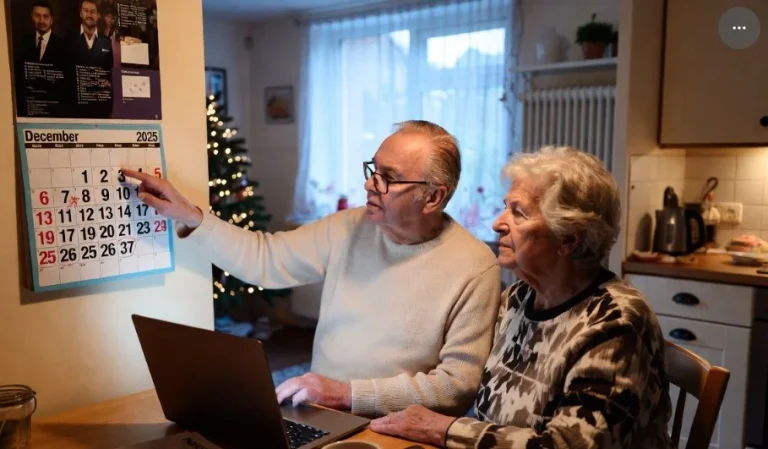Angela Rayner, the UK’s Deputy Prime Minister and a prominent figure in the Labour Party, is facing intense public scrutiny following allegations that she avoided paying around £40,000 in stamp duty during the purchase of a property.
As the media and political opposition amplify concerns, Labour leader Sir Keir Starmer has stepped forward in her defence, reiterating his confidence in her integrity and vowing to stand by her.
This controversy, which touches on property ownership, legal technicalities, and ethical standards in public office, has triggered a broader debate around transparency and accountability in UK politics. As an independent investigation is launched, the nation watches closely to see how this case unfolds.
What Are the Angela Rayner Tax Dodge Allegations?
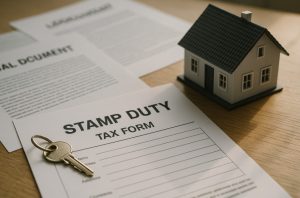
The controversy surrounding Angela Rayner began when it was revealed that she had potentially avoided paying approximately £40,000 in stamp duty by declaring her Hove flat in East Sussex as her primary residence.
The flat, purchased for £800,000, became the focus of scrutiny after reports suggested she may have continued to spend significant time at her previous family home in Ashton-under-Lyne.
Under UK tax law, when an individual purchases an additional property, they are usually required to pay a higher rate of stamp duty unless it is genuinely their main residence.
Questions arose regarding whether Rayner had removed her name from the deeds of the family home shortly before the flat purchase in order to claim a lower tax rate on the Hove property.
Media outlets and political opponents argued that the action amounted to a calculated attempt to reduce her tax liability. Critics quickly labelled the move a “tax dodge,” implying intent to mislead the tax authorities. However, Rayner has continued to deny any wrongdoing and maintains that she acted based on legal advice at the time.
How Has Angela Rayner Responded to the Tax Allegations?
Angela Rayner has addressed the allegations by stating that she believed she was following the law when completing the purchase of the Hove flat. She claimed she had received legal advice indicating that she was liable for the standard rate of stamp duty, not the higher rate associated with second homes.
Her response has included several key steps to address public and political concerns:
- She referred herself to the Prime Minister’s independent adviser on ministerial interests.
- She sought a second legal opinion from a senior tax counsel after media coverage intensified.
- She has participated in media interviews to explain her position and express remorse over the situation.
In a widely viewed interview with Sky News, Rayner said she was “devastated” by the allegations and maintained that the mistake stemmed from poor legal advice rather than any deliberate effort to avoid taxation.
Her comments were emotionally charged, and she expressed a deep sense of personal and professional impact from the unfolding controversy.
Why Is Keir Starmer Defending Angela Rayner?

Sir Keir Starmer has offered unwavering support for Angela Rayner amid the scandal. Speaking during PMQs, he described himself as “very proud to sit alongside her” and commended her decision to seek an independent review of her conduct. His defence appears to be motivated by both political loyalty and strategic considerations.
From a political standpoint, Rayner is a central figure in Labour’s leadership team and plays a key role in the party’s public messaging. Removing or distancing her at this stage could send a signal of internal disarray and weaken Labour’s position ahead of an anticipated general election.
Privately, sources within the Labour Party have suggested that Starmer views the criticism against Rayner as opportunistic and politically motivated. Allies of the Labour leader have also emphasised that he is unwilling to hand his opponents a symbolic “scalp,” particularly in a pre-election climate.
This support does not appear to be unconditional. Starmer has made it clear that he will await the findings of the independent ethics adviser before making any final decisions. This approach allows him to maintain credibility while backing his deputy.
What Is the Role of the Independent Ethics Adviser in This Case?
The investigation into Rayner’s conduct is being led by Sir Laurie Magnus, who serves as the Prime Minister’s independent adviser on ministerial interests. His responsibilities include assessing whether ministers or senior government figures have breached the Ministerial Code.
In Rayner’s case, the adviser will focus on the specifics of her property ownership and whether her actions constitute a breach of ethical standards. The adviser has access to legal documents, ownership records, and expert analysis to guide his conclusions.
The process involves:
- Reviewing all documentation related to the Hove flat purchase
- Interviewing Rayner and potentially other involved parties
- Consulting legal and tax professionals for interpretation
Although the adviser’s recommendations are not legally binding, they carry significant political weight. A finding against Rayner could intensify calls for her resignation, while a favourable outcome might reinforce her credibility.
Could Angela Rayner Face Legal or Political Consequences?
While there is currently no indication that criminal charges will be pursued, the matter could still have serious implications. If the HM Revenue & Customs (HMRC) determines that Rayner was liable for the higher stamp duty rate and failed to pay it, she may be required to repay the difference along with potential penalties.
Legally, the line between tax avoidance and tax evasion is key. Tax avoidance is legal, although often frowned upon, while tax evasion involves deliberately misleading the authorities and is a criminal offence. The controversy hinges on whether Rayner’s actions were based on a genuine misunderstanding or deliberate misrepresentation.
Politically, the consequences could be more severe. The issue has been seized upon by opposition parties, particularly the Conservatives, who argue that Labour cannot claim moral authority on financial matters while defending one of its own in a tax-related scandal.
Stamp Duty Rates Comparison for Primary and Additional Properties
| Property Price Range | Standard Stamp Duty | Additional Property Rate |
| Up to £250,000 | 0% | 3% |
| £250,001 to £925,000 | 5% | 8% |
| £925,001 to £1.5 million | 10% | 13% |
| Over £1.5 million | 12% | 15% |
If the Hove flat was genuinely her only property, Rayner would have paid the standard rate. However, if she still effectively retained a stake in her family home, the additional property rate may have applied, justifying the scrutiny she now faces.
What Are the Broader Implications for the Labour Party?
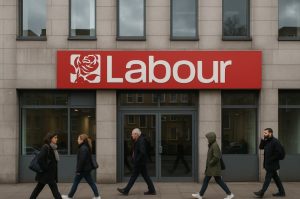
The Labour Party’s credibility on financial transparency and ethical leadership is being tested by this controversy. In recent years, Labour has consistently challenged the Conservatives over issues of corruption, lobbying, and ethical standards. This case has put Labour’s internal accountability under the spotlight.
With a general election potentially less than a year away, any internal scandal can influence public perception. Starmer’s handling of this issue will likely shape the public’s confidence in Labour’s readiness to govern.
There are also concerns within the party regarding:
- The consistency of ethical standards across all MPs and ministers
- The potential distraction from key policy messages
- The media’s framing of Labour’s internal dynamics
So far, the party has stood behind Rayner, suggesting a unified front. However, the findings of the ethics review could disrupt this alignment depending on the outcome.
How Have Political Rivals Reacted to the Scandal?
Political opponents have used the Rayner controversy to question Labour’s moral authority. Kemi Badenoch, a leading Conservative MP, was particularly vocal, referencing the Prime Minister’s own past comments about tax evasion being equivalent to fraud. She stated that if the Prime Minister had integrity, he would dismiss Rayner from her post.
Other Conservative MPs have been less confrontational but still urged that a thorough investigation is necessary. Meanwhile, some Labour MPs have taken a more cautious tone, suggesting that due process should be followed and avoiding public commentary on Rayner’s future.
Timeline of Events in Angela Rayner’s Tax Allegations
| Date | Event |
| Early 2020 | Angela Rayner purchases £800,000 Hove flat |
| 2023 | Media begins reporting on her property arrangements |
| March 2024 | Allegations of stamp duty underpayment surface |
| April 2024 | Rayner refers herself to independent ethics adviser |
| May 2024 | Public interview with Sky News; Rayner denies wrongdoing |
| Ongoing | Investigation by Sir Laurie Magnus continues |
What Lessons Can Be Learned from the Angela Rayner Tax Controversy?
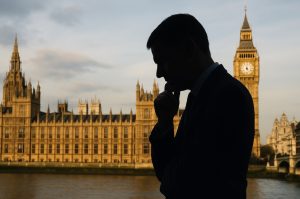
Angela Rayner’s situation highlights the complexities of property law, tax obligations, and the expectations placed on public officials. Even when acting in perceived good faith, politicians must be aware that public and media scrutiny can reshape the narrative.
Several key takeaways emerge from this case:
- Legal advice should always be verified, especially when large sums of public interest are involved
- Transparency in financial matters is essential for public trust
- Ethical oversight mechanisms must be robust and impartial
The controversy may also push for reforms in how MPs and public figures disclose property ownership and tax status, especially when transitioning between personal and official residences.
Conclusion
The Angela Rayner tax controversy underscores the importance of transparency and accountability in public office.
While Rayner maintains she acted in good faith, the ongoing investigation will be crucial in determining whether legal or ethical boundaries were crossed.
Keir Starmer’s firm support highlights Labour’s commitment to due process, but the party’s credibility hangs in the balance.
As the case develops, it serves as a reminder that even perceived financial missteps can have significant political consequences in the public eye.
FAQs About Angela Rayner’s Tax Controversy
What is the difference between tax avoidance and tax evasion?
Tax avoidance involves legally exploiting loopholes to reduce tax liabilities, while tax evasion is the illegal non-payment or underpayment of tax. Rayner claims her case was a result of legal advice, not deliberate evasion.
Could Angela Rayner be prosecuted for not paying stamp duty?
Unless there is clear evidence of intent to deceive or break the law, prosecution is unlikely. However, HMRC may pursue repayment or penalties if an error is confirmed.
Why did Angela Rayner remove her name from the family home deeds?
It has been reported that Rayner removed her name to classify the Hove flat as her primary residence. This may have impacted the stamp duty owed, triggering the current scrutiny.
What role does HMRC play in this investigation?
If the case escalates beyond the ethics adviser’s review, HMRC could open a formal investigation to determine whether tax laws were broken and whether additional payments are due.
How does the ethics adviser investigate an MP?
The ethics adviser reviews documents, interviews relevant parties, and evaluates whether ministerial codes or legal standards were breached. Recommendations are made to the Prime Minister.
How has the public reacted to the Angela Rayner tax news?
Public opinion has been divided. Supporters argue that she acted in good faith, while critics see the incident as a betrayal of public trust and demand accountability.
What precedent does this set for future political scandals?
This case may set a precedent for how allegations of financial misconduct are handled within political parties, especially with regards to self-referral and public transparency.

